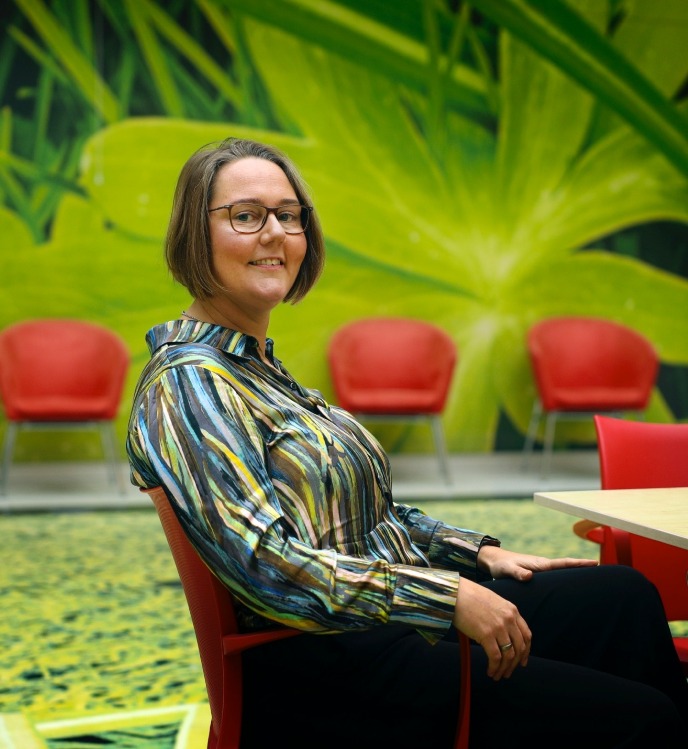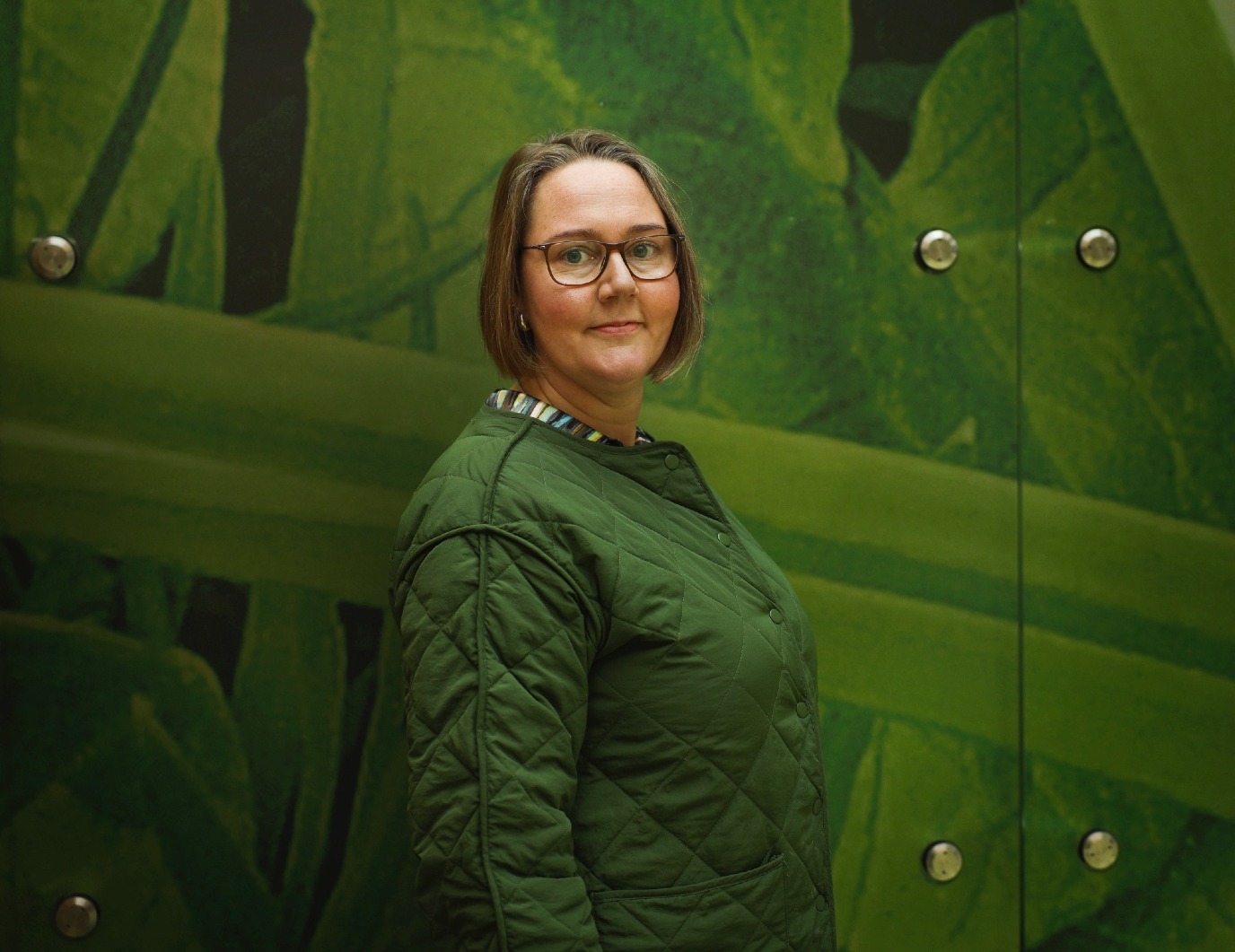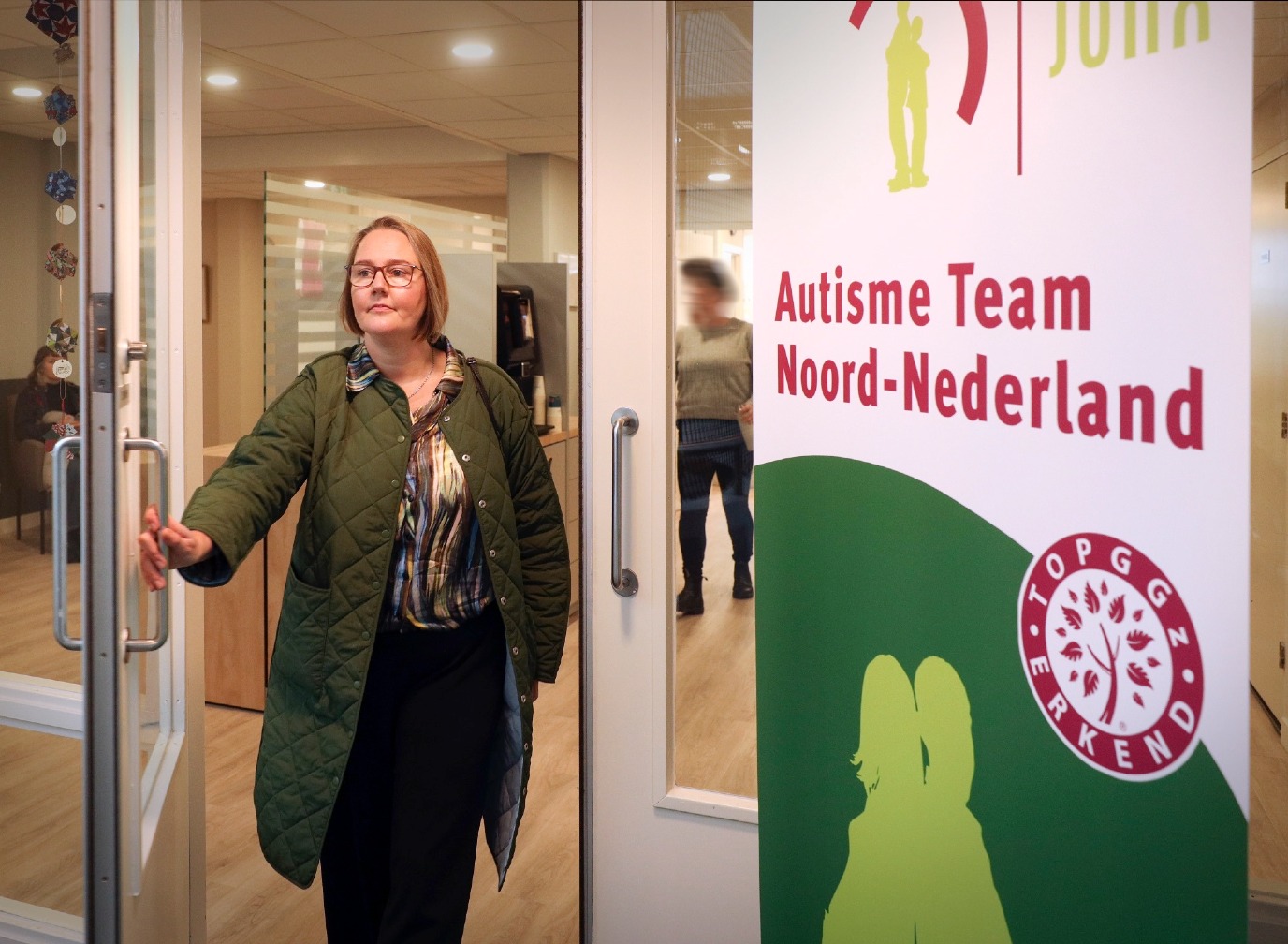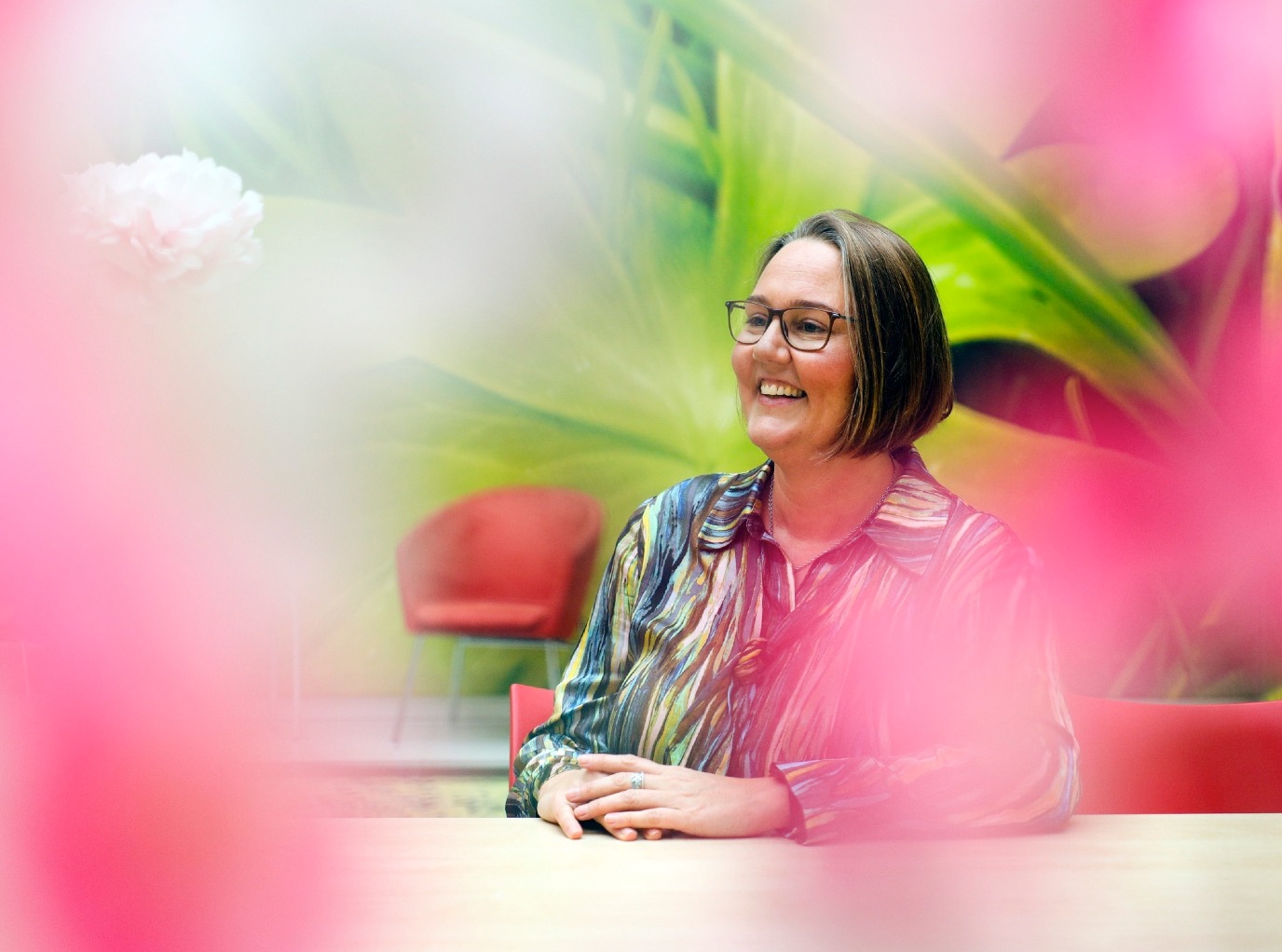Autism in women: masking takes its toll

Women with autism are often diagnosed later than men; partly because they show socially desirable behaviour and mask their symptoms. Researcher Yvonne Groen developed a screening tool together with her colleagues to simplify the diagnosis and hopes to help women find the proper support faster.
Text: Beau Oldenburg / Photos: Henk Veenstra
Groen still remembers the moment well when her mother, then sixty years old, received the diagnosis autism. ‘Suddenly everything made sense,’ she says. For many years, her mother struggled with misunderstood behaviour and regularly ended up in crisis situations that had consequences for the whole family. During the time that autism was primarily seen as a ‘male problem’, women like her mother often went unnoticed.
Personal motivation
Groen herself—who was already researching autism at the time—never thought of the label autism either, even though she had felt for quite a while that there was more going on. This personal experience inspired her to advocate for better identification and treatment of autism in women. ‘With my research, I hope that other women and their families can get the proper support faster,’ she says
First signs
In young girls with autism, the symptoms often remain hidden for a long time. In primary school, they can still manage relatively well, but after the transition to secondary school, the first signs become visible. ‘They feel different from their peers who are often socio-emotionally more developed,’ Groen explains. Autism has many faces, but it can manifest itself in, among other things, having difficulty with reciprocal conversations and avoiding eye contact. To fit in, girls with autism try to act as ‘normal’ as possible. They write out conversations in advance, for example, or focus their gaze in between the eyes of their conversation partner to avoid direct eye contact.

Masking
According to Groen, this masking of autism is more common in girls and women, because of the higher socio-emotional expectations they face. ‘Women are expected to be more socially skilled, hold more complex conversations, and maintain more relationships. Men get away with it more easily when they are a bit withdrawn and they have to talk less about their feelings.’ Girls already learn to adapt at a young age and sometimes subconsciously continue to do so in their adult lives.
High price
But that continuous adaptation takes its toll, Groen warns. ‘It can harm your identity development, for example. If you continuously act as if you are someone else, you lose touch with yourself. Who are you really, what do you find important?’ Even if women know how to successfully hide their autistic traits from the outside world, it costs them a huge amount of energy. The eventual result: fear, depression, burnout, and chronic pain. In turn, these additional problems make it more difficult to make the correct diagnosis.

Progress
There is also good news: since Groen’s mother’s diagnosis, significant progress has been made in recognizing autism in women. Whereas in the 1990s only one in five diagnoses involved women, it is now one in three. ‘We do not know exactly what the actual distribution between men and women is, but these numbers are probably fairly accurate,’ Groen thinks.
A new screening tool
Groen herself contributed to better diagnostics by developing a special screening tool for women, in collaboration with the Autism Team Northern Netherlands, part of Jonx which is part of the mental healthcare organization Lentis. ‘In collaboration with experts, we drew up 52 questions that closely align with the experiences of autistic women,’ she explains. The tool, which can be downloaded for free, includes questions about masking, such as: ‘I’ve been acting like a social person for years, but that’s not actually who I am.’ The screening tool can be an important first step towards further examination.
Improving quality of life
Early identification and recognition of autism is crucial, according to Groen. ‘Although autism does not go away, the quality of life can improve significantly,’ she emphasizes. This requires tailored solutions because everyone handles autism differently and has specific needs. Together with the environment, you must consider what you need to function well.

Acceptance and peace
An important step towards a better life for autistic women is to stop masking. ‘When they can organize their lives in such a way that they are not constantly overstretched, autistic symptoms can decrease. They become less sensitive to stimuli, feel more at home in their bodies, and develop a stronger sense of identity,’ Groen explains. She also noticed this with her mother who was able to find peace and acceptance after her diagnosis. ‘The diagnosis changed the way the healthcare system and her family interacted with her. This has had a positive influence on her life.’
More information
| Last modified: | 18 December 2024 11.30 a.m. |
More news
-
17 March 2025
Liekuut | The high price of conflicts
According to Carsten de Dreu, Professor of Foundations of Cooperation and Social Organization at the University of Groningen, a lot can be learned from conflicts.
-
10 March 2025
Science for Society | Memory Lab for higher marks
Learning facts at school is something hardly anyone likes. The day before a test, pupils cram as many words or names as possible into their heads, only to hopefully remember them the next morning and then forget them again after the test.
-
05 March 2025
Women in Science
The UG celebrates International Women’s Day with a special photo series: Women in Science.
